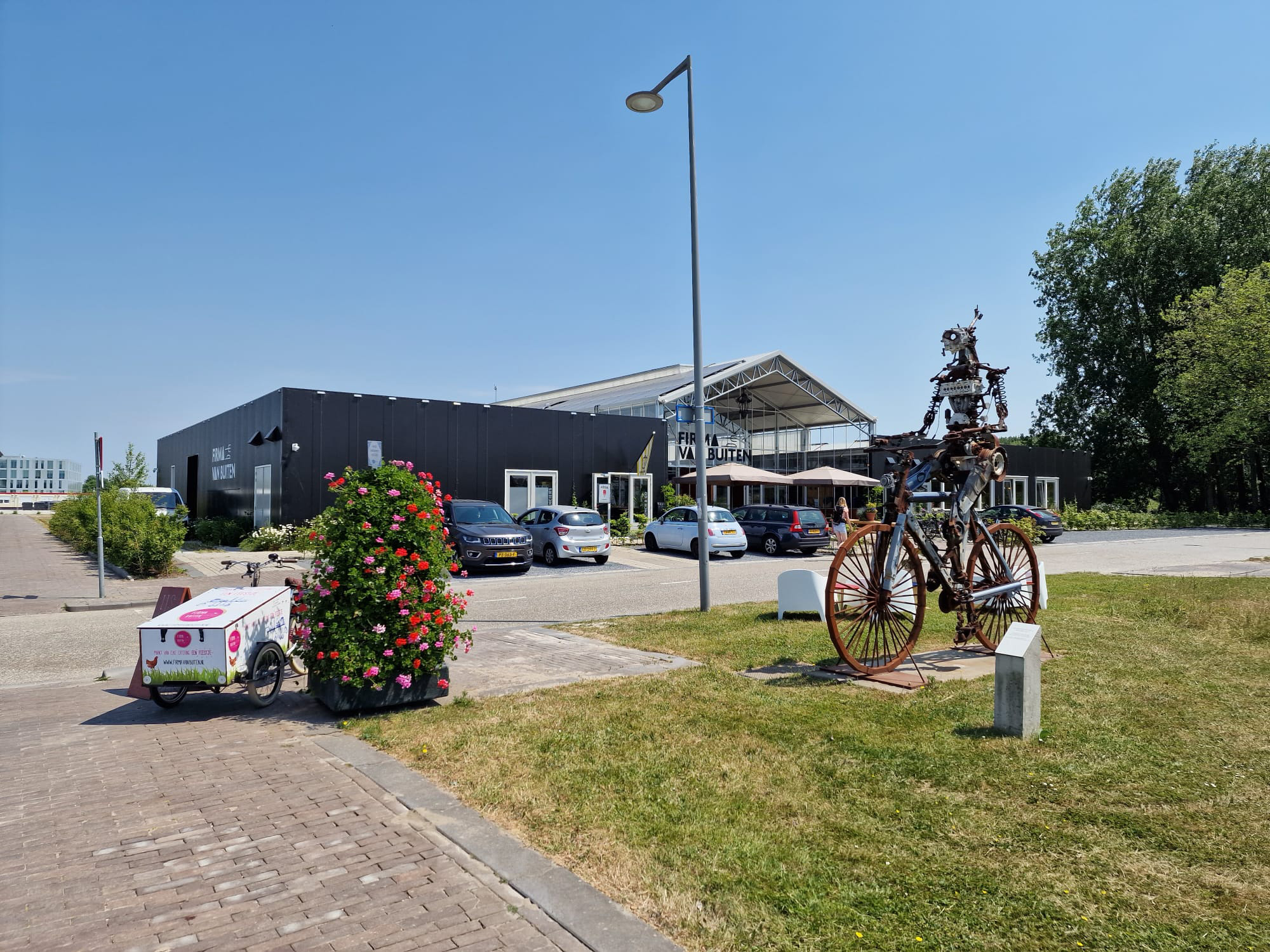TU Delft Campus as a Living Lab
For sustainable innovations
Innovation process
Startup and commercial parties
Commercial participation is an important requirement for an innovation initiative. Therefore, we encourage third parties to be involved and to contribute in-kind and/or co-funding during the research phase of scaling up. After all, scaling up is done from a strong entrepreneurial spirit.
Are you a start-up or commercial entity with a technical innovation requiring additional upscaling research or interested in joining a research project? Connect with our researchers through the Campus Innovation Team to investigate the collaboration potential.
Current projects
Green Façades
The goal is to develop a portfolio of characteristics (numerically substantiated) of the various vertical green systems studied, so that users have a catalog of climate-adaptive solutions they can use in the development of residential areas, the design of buildings, or the transformation of existing structures. In total, four systems will be applied and studied, which consists of common green structures as well as bio-receptive greenery solutions.
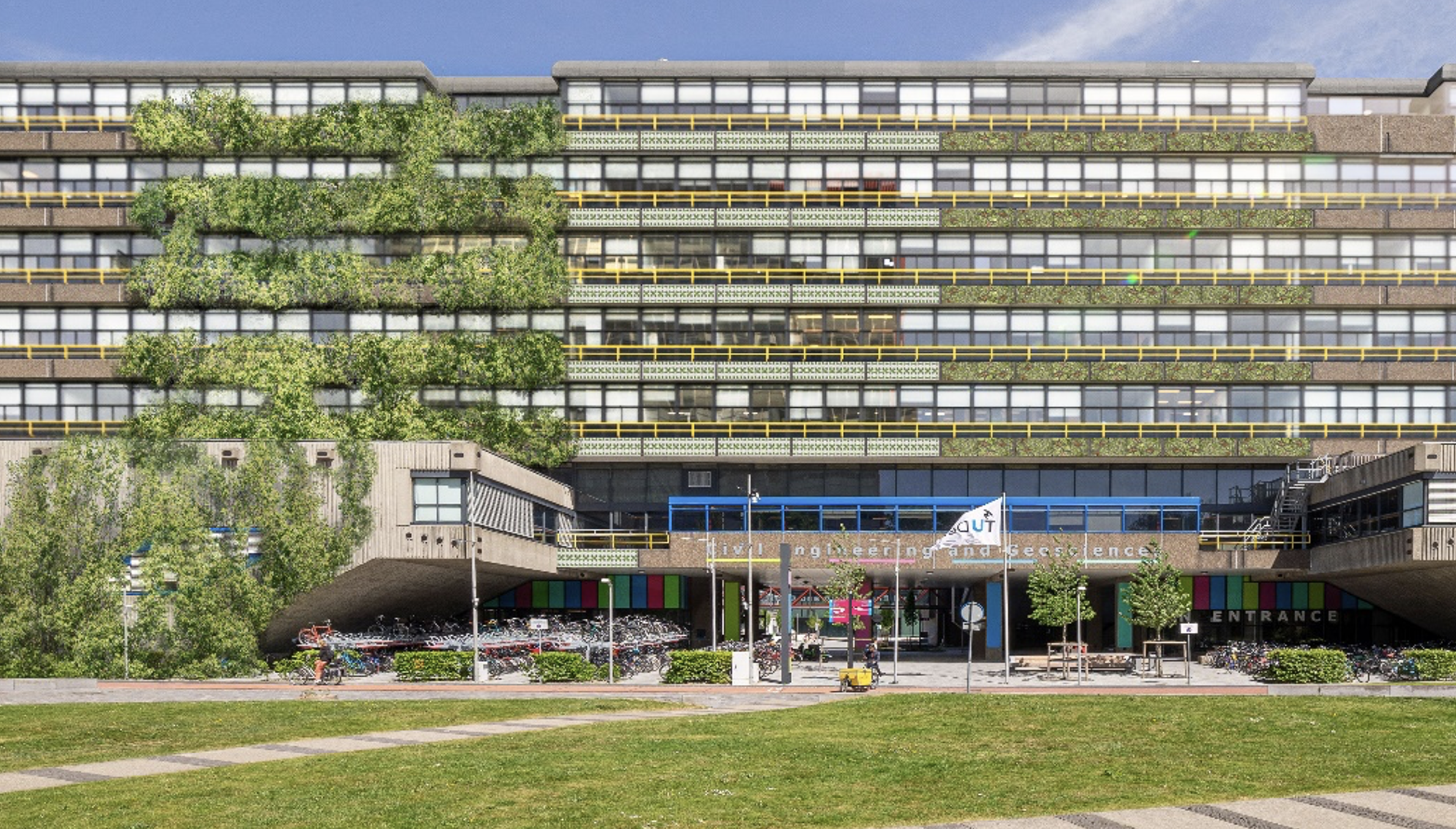
Circular Arch Bridge
A new bridge has been constructed between Mekelpark and The Green Village using waste materials such as discarded toilet bowls, other ceramics, and residual concrete. The bridge features a modular design and can be easily disassembled, as no adhesive has been used to secure the elements. The uniquely designed structure is currently undergoing tests to assess its performance under various weather conditions and seasonal changes, and it is being closely monitored.
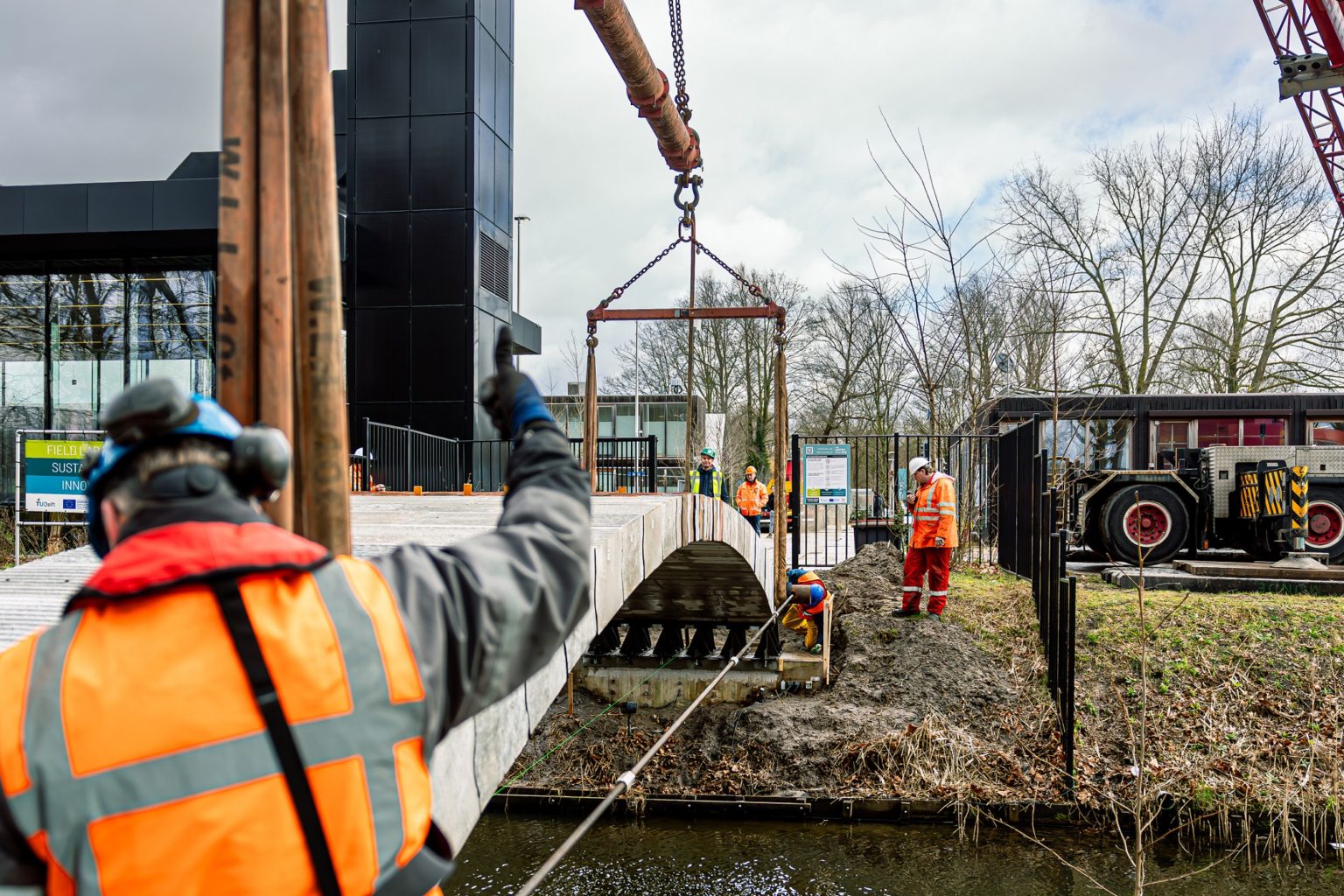
24/7 Energy Hub
The 24/7 Energy Hub project has established a complete system, incorporating all necessary components for an off-grid energy system. This includes an electrolyser, solar panels, hydrogen storage, a combustion engine, batteries, an energy management system and actual users. This full cycle must function flawlessly together to provide buildings with 24/7 green energy. The current prototype is being optimized and scaled up for the entire Green Village. In parallel, a feasibility and impact study is being conducted on the scale-up possibilities for the campus.
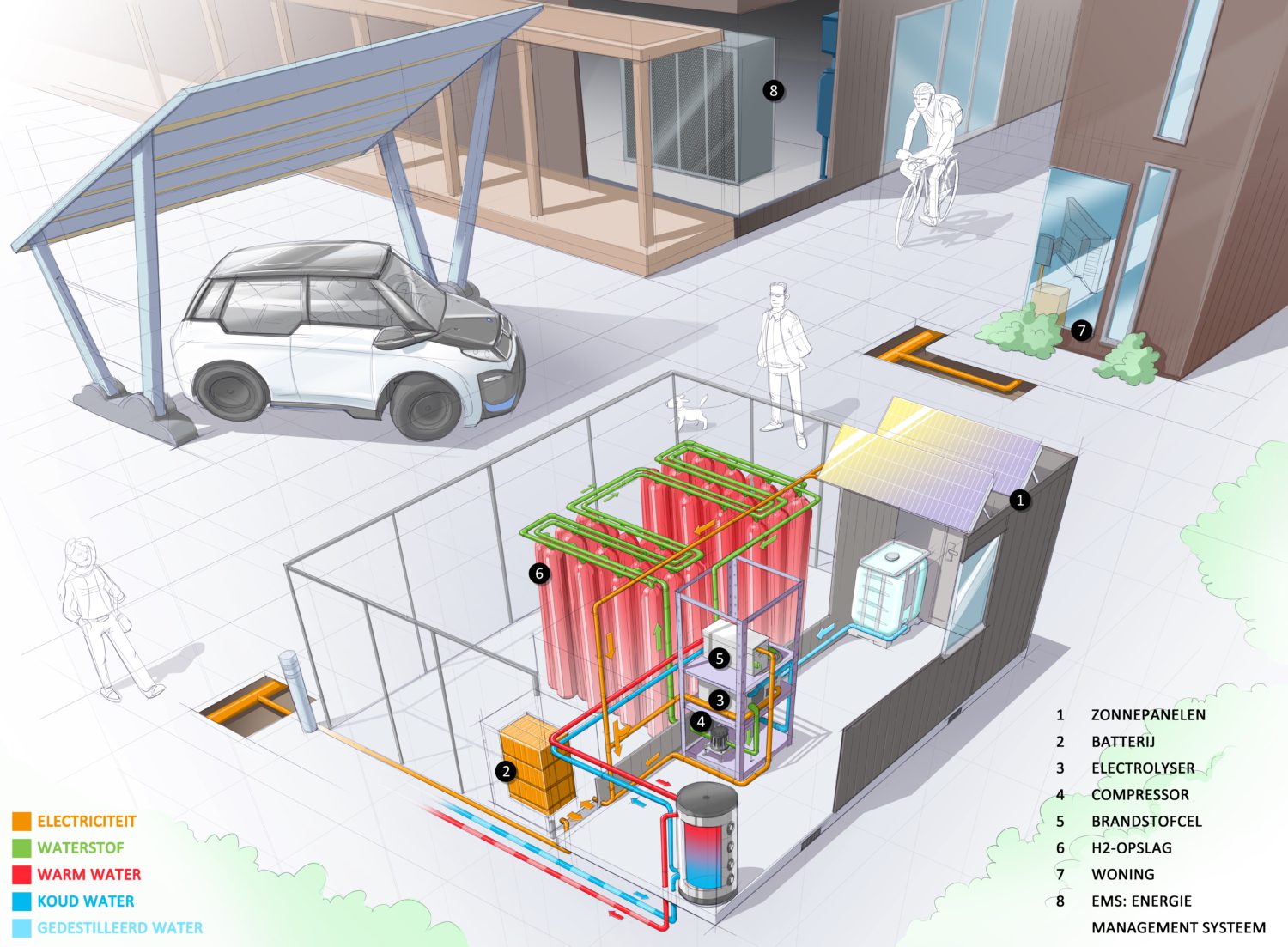
HT-ATES
The heat produced in the summer by our geothermal well is stored in the High Temperature – Aquifer Thermal Energy Storage (HT-ATES), at approximately 200 meters depth, and is extracted again in winter. The heat from the aquifer is used to provide peak demand, instead of burning gas. The installation of the HT-ATES is part of an H-Europe project led by TU Delft and is significantly funded by the H-EU project, but not entirely.
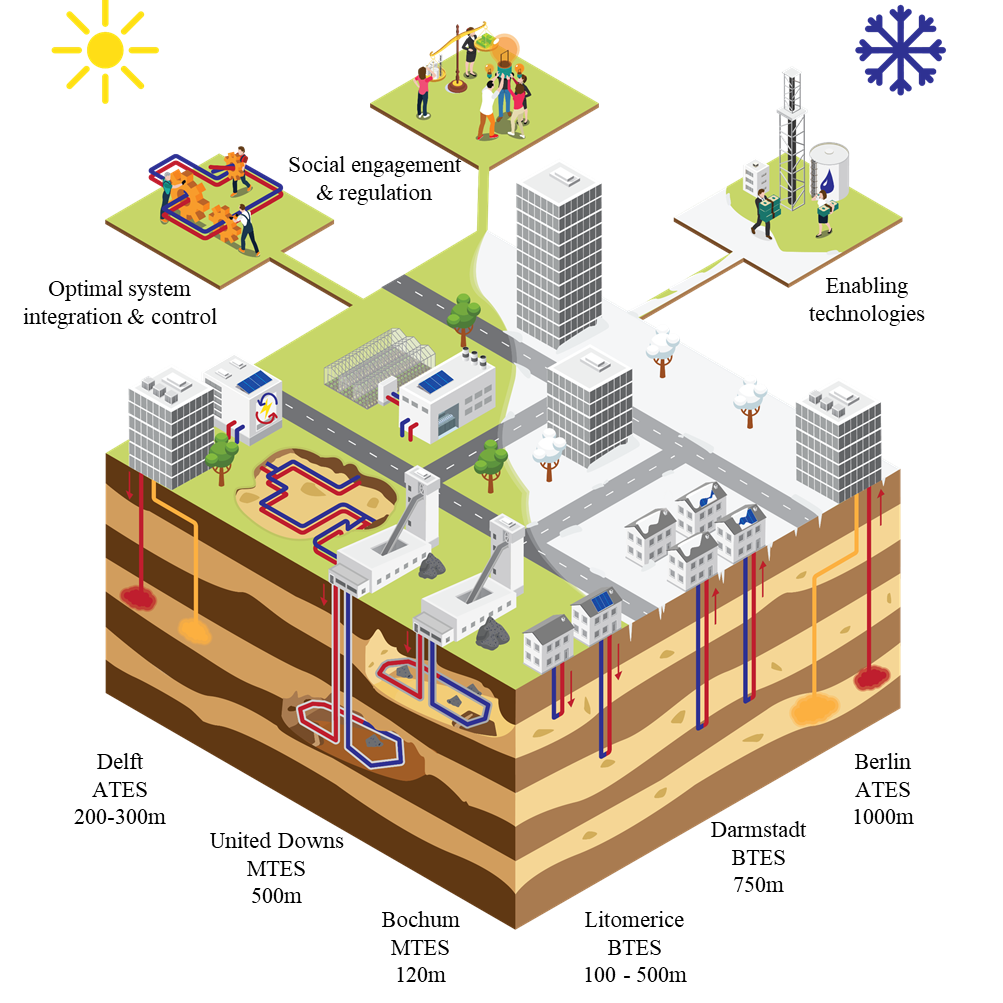
Surface water aqua thermal energy
This project is about thermal energy from surface water, using heat exchangers in surface water and a heat pump system that can regulate heating and cooling at Firma van Buiten. Through this project, the research team wants to investigate the functionality and effectiveness of aqua thermal energy, as well as the effects on the surface water (temperature, aquatic ecology, algae and bacterial formation, ice formation, etc.).
